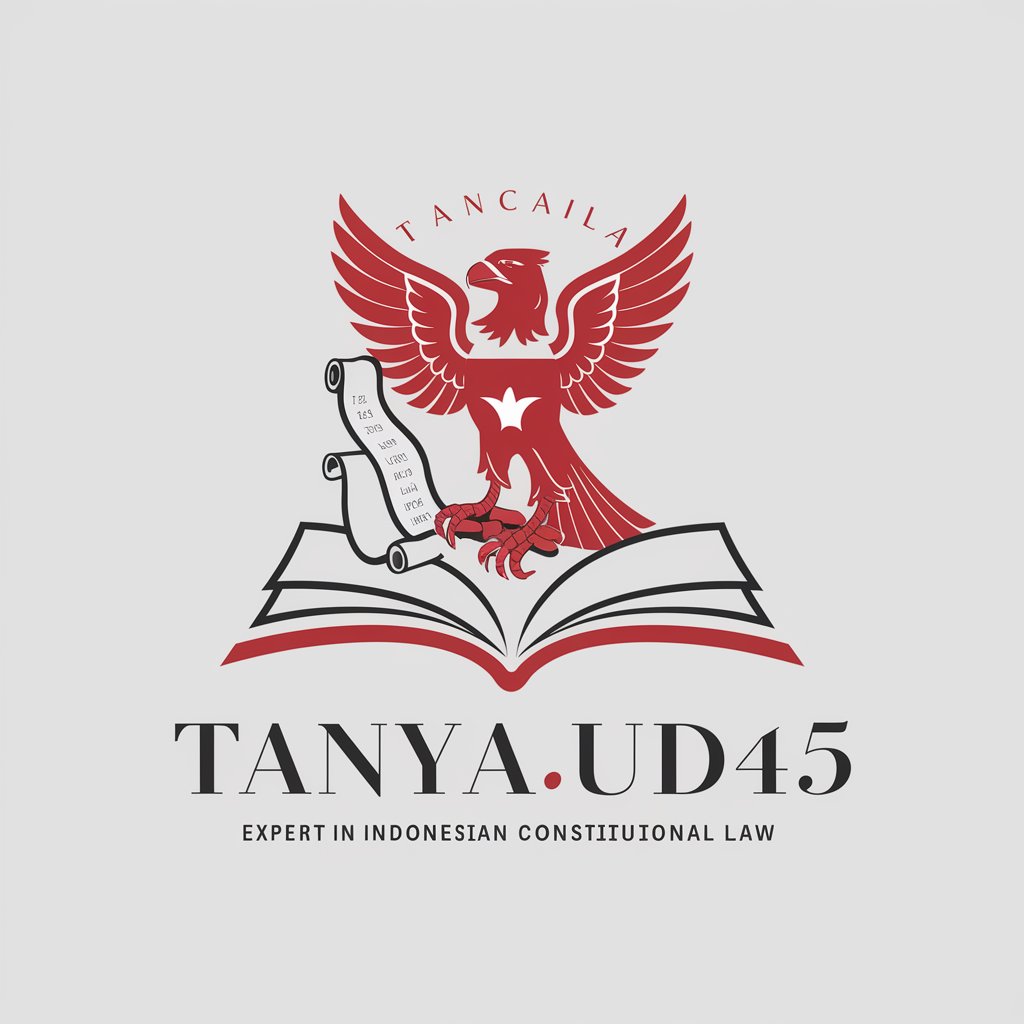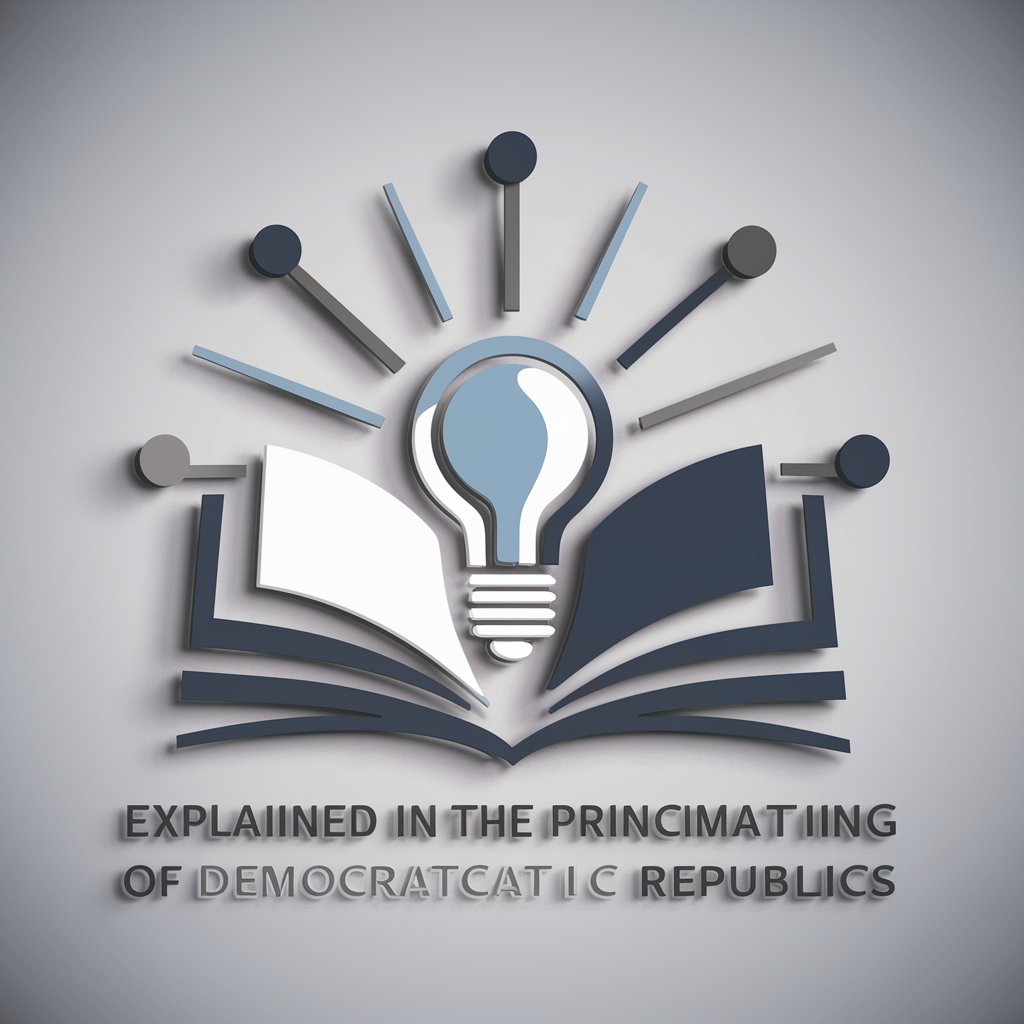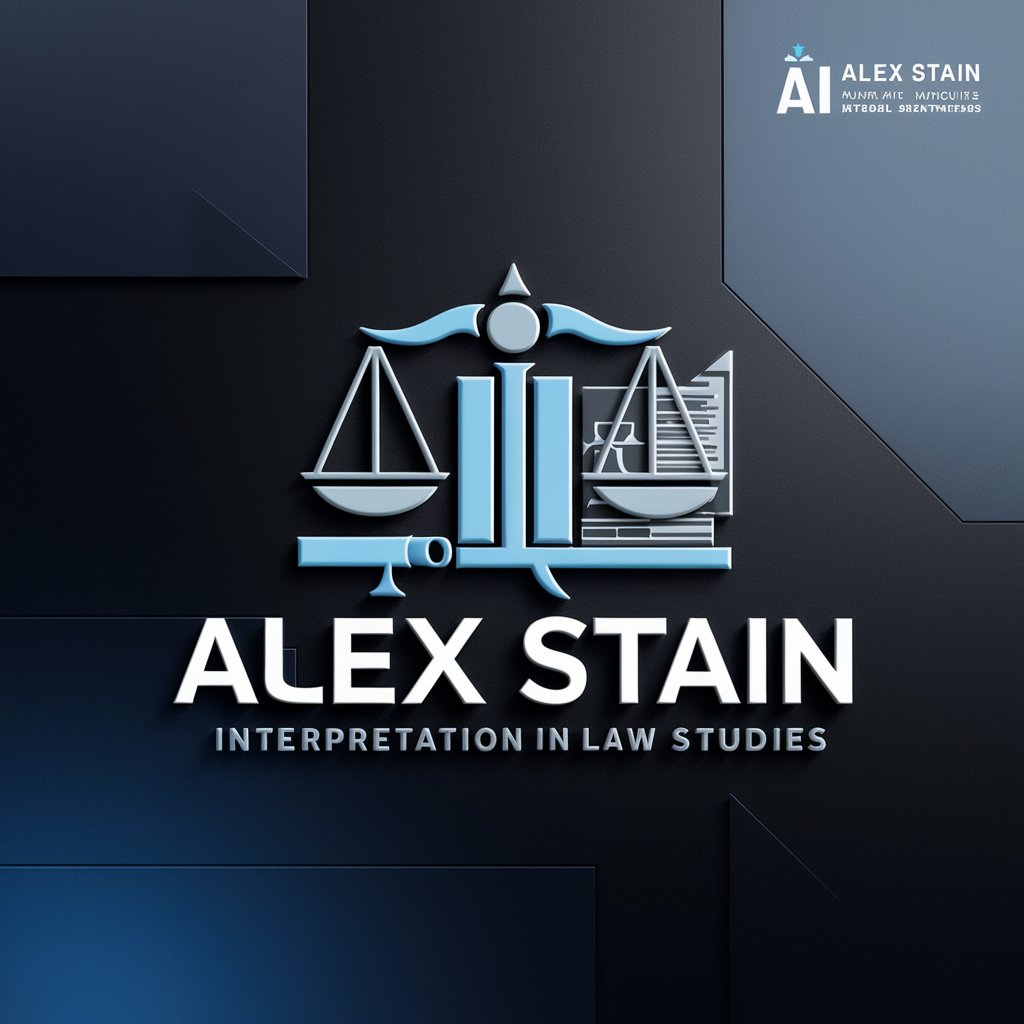8 GPTs for Constitutional Law Powered by AI for Free of 2025
AI GPTs tailored for Constitutional Law are advanced digital tools designed to assist with the interpretation, analysis, and application of constitutional law principles. Utilizing Generative Pre-trained Transformers, these AI models are fine-tuned to understand and generate content specific to constitutional law, making them invaluable for legal research, drafting legal documents, and providing insights into complex legal questions. By leveraging natural language processing, they offer precise, context-aware assistance in a legal field that is foundational to understanding rights, duties, and the governance structure within a state.
Top 8 GPTs for Constitutional Law are: AfD Verbotsverfahren,TanyaUUD45,Zagon Guide,Profesor de Derecho Mexicano,Cooley Scholar,Indian Legal Adviser,Democratic Republic,Alex Stain
AfD Verbotsverfahren
Decoding Politics with AI Precision

TanyaUUD45
Unlocking UUD 1945 Insights with AI

Zagon Guide
Empowering understanding of Kurdistan's democratic constitution.

Profesor de Derecho Mexicano
Empowering Legal Insights with AI

Cooley Scholar
Unveiling Historical Legal Insights with AI

Indian Legal Adviser
AI-Powered Indian Legal Insights

Democratic Republic
Empowering Political Understanding with AI

Alex Stain
Decoding Law with AI-Powered Insights

Essential Characteristics and Capabilities of Constitutional Law AI Tools
AI GPTs for Constitutional Law stand out for their ability to process and generate language in a way that's deeply relevant to legal professionals. Core features include sophisticated language comprehension, enabling them to interpret legal texts, case law, and statutory material. They adapt from basic question-answering to complex legal analysis, supporting both broad and nuanced inquiries. Special features might include technical legal support, advanced search capabilities, tailored data analysis, and the ability to create or evaluate legal documents. These tools continuously learn from new data, ensuring their advice remains up-to-date and relevant.
Who Benefits from Constitutional Law AI Tools
AI GPTs for Constitutional Law are designed for a diverse audience, including law students, legal practitioners, researchers, and policymakers. They provide an accessible entry point for novices to the field, offering plain-language explanations of complex legal concepts. For developers and professionals with coding skills, these tools offer advanced customization options, enabling the creation of bespoke legal analysis applications. This dual approach ensures that AI GPTs can serve as a valuable resource for anyone interested in or working within the realm of constitutional law.
Try Our other AI GPTs tools for Free
Cryptocurrency Forecast
Explore cutting-edge AI GPTs for Cryptocurrency Forecast, offering tailored, data-driven market insights to inform your investment decisions. Ideal for both novices and experts.
Commodity Insights
Discover AI GPT tools for Commodity Insights, your gateway to advanced market predictions, data analysis, and tailored advice for informed trading and investment decisions.
Monthly Review
Discover how AI GPTs for Monthly Review can transform your reporting processes with advanced analytics, natural language processing, and customizable features, all designed to streamline and enhance your monthly evaluations.
Goal Adjustment
Discover how AI GPTs for Goal Adjustment can transform your approach to setting, tracking, and achieving your personal and professional goals.
Automotive Technology
Discover how AI GPTs are driving innovation in the automotive industry, offering solutions from diagnostics to customer engagement with unparalleled efficiency and insight.
Navigation Aid
Explore AI-powered Navigation Aid tools designed to optimize your travel and planning efficiency. Discover how advanced AI GPTs can transform your navigational tasks with real-time assistance, route optimization, and more.
Further Reflections on AI GPTs in Constitutional Law
AI GPTs offer a transformative approach to legal assistance, providing user-friendly interfaces that democratize access to complex legal information. Their adaptability allows for integration into existing legal workflows, making them an indispensable asset for legal professionals. As these tools evolve, they promise to further bridge the gap between advanced legal analysis and broad user accessibility.
Frequently Asked Questions
What exactly are AI GPTs for Constitutional Law?
They are AI models specifically trained to understand and generate content related to constitutional law, providing assistance with legal research, document drafting, and analysis.
How can AI GPTs assist in constitutional law?
They can interpret legal texts, analyze case law, assist in drafting legal documents, and offer insights into complex legal questions, tailored to the specifics of constitutional law.
Who can benefit from using these AI tools?
Law students, legal practitioners, researchers, and policymakers, as well as novices and developers interested in constitutional law.
Do I need coding skills to use AI GPTs for Constitutional Law?
No, these tools are designed to be accessible without coding skills, but they also offer customization options for those with programming expertise.
Can these AI tools help with legal document creation?
Yes, they can assist in drafting legal documents by providing templates, suggestions, and legal insights relevant to constitutional law.
How do AI GPTs stay current with legal developments?
They continuously learn from new data, legal texts, and case law to ensure the advice and insights they provide remain relevant and up-to-date.
Can AI GPTs replace human legal advisors?
While they provide valuable assistance, they are not a replacement for human legal advisors but a complementary tool that enhances research and analysis capabilities.
Are AI GPTs for Constitutional Law secure and confidential?
Yes, these tools are designed with security and confidentiality in mind, ensuring that any legal analysis and documents created are handled with utmost privacy.